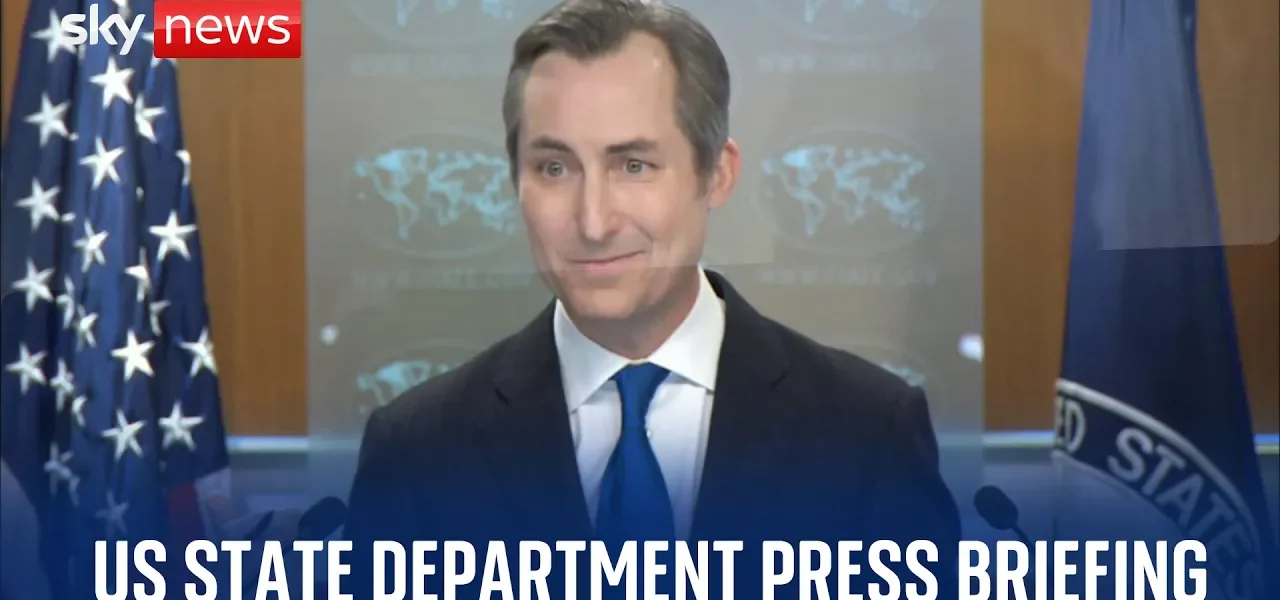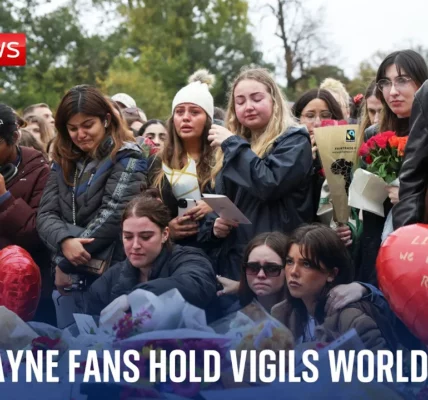U.S. Imposes New Visa Restrictions and Sanctions in the West Bank

The United States has announced new visa restrictions and sanctions aimed at individuals contributing to violence and instability in the West Bank. This article explores the implications of these actions, the context of U.S. foreign policy in the region, and ongoing efforts to promote accountability and human rights.
Introduction
The ongoing conflict in the West Bank has been a focal point of U.S. foreign policy, with the United States consistently advocating for stability and peace in the region. In light of recent escalations in violence, the U.S. government has enacted new measures to hold accountable those believed to be undermining these efforts. This includes a series of visa restrictions and sanctions aimed at individuals and entities involved in human rights violations. The actions taken highlight the U.S. commitment to promote justice and accountability for both Palestinians and Israelis, emphasizing the need for effective measures to address ongoing violence.
Recent U.S. Actions and Policy Announcements
Visa Restrictions and Sanctions Overview
In December, Secretary of State Antony Blinken announced a visa restriction policy that targets individuals involved in actions undermining stability in the West Bank. This policy allows for the restriction of visas for those believed to have contributed to violence or human rights abuses. Following this, President Biden signed an executive order granting the U.S. government the authority to impose sanctions on individuals engaging in activities detrimental to peace and security in the region.
Specific Cases of Sanctioned Individuals
As part of these efforts, the U.S. has recently imposed sanctions on 11 individuals and entities linked to violent actions against civilians. For example, Elor Aaria, a former Israeli Defense Forces Sergeant, was designated for his involvement in gross human rights violations. This designation renders him and his immediate family generally ineligible for entry into the United States.
- Sanctions have been imposed based on findings of gross human rights violations.
- A total of 22 individuals and entities have faced sanctions since the implementation of this policy.
- The U.S. emphasizes its commitment to accountability for violators on both sides of the conflict.
The Importance of Accountability in the West Bank
Promoting Justice for Palestinian and Israeli Victims
The U.S. government has reiterated that accountability for violence and human rights violations is crucial for achieving a lasting peace in the region. Secretary Blinken has called on both the Israeli government and the Palestinian Authority to take necessary steps to hold accountable those responsible for acts of violence. The emphasis on accountability is not only a matter of principle but also a strategic approach to diminish the cycle of violence that has plagued the region for decades.
Challenges to Accountability Measures
Despite the U.S. efforts to promote accountability, there remain significant challenges. Critics have pointed out that the measures taken against individuals may not sufficiently address systemic issues within military and governmental structures. There are ongoing debates about whether existing judicial measures in Israel are adequate to handle cases involving human rights violations effectively.
- Calls for increased accountability from the Israeli government.
- Concerns over the effectiveness of Israeli military justice in addressing human rights violations.
- The need for international oversight to ensure compliance with human rights standards.
Responses to U.S. Policy and International Reactions
Domestic and International Criticism
U.S. actions have not gone without criticism. Some argue that the measures may not be sufficient to deter ongoing violence, while others question the timing and effectiveness of imposing sanctions on individuals for actions that occurred several years ago. The administration maintains that these actions are not isolated cases but part of a broader strategy to respond to an uptick in violence in the West Bank.
Engagement with the Israeli Government
The U.S. has engaged directly with the Israeli government regarding its policies and actions that could exacerbate tensions. This includes discussions on accountability measures and the need for more robust actions to curb violence, especially against civilians. The administration has expressed its commitment to maintaining a dialogue focused on peace and stability.
Conclusion
The recent U.S. sanctions and visa restrictions represent a significant step in addressing the complex dynamics of violence in the West Bank. While these measures are aimed at promoting accountability, they also highlight the ongoing challenges in achieving a balanced approach to justice for both Palestinians and Israelis. As violence continues to escalate, the U.S. remains committed to advocating for peace and security in the region. Moving forward, it is essential for all parties involved to engage in constructive dialogue and take meaningful actions towards lasting solutions.
For further updates on U.S. foreign policy and actions in the Middle East, visit our related articles section.
“`




